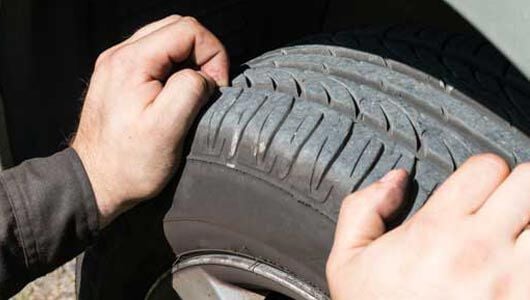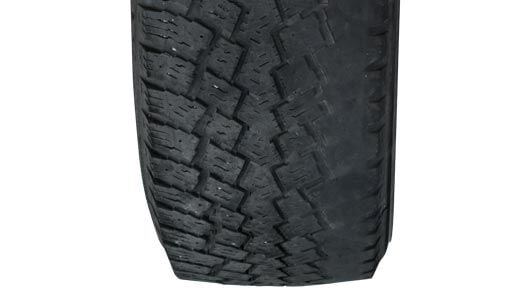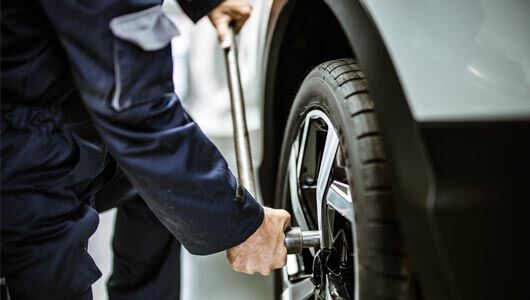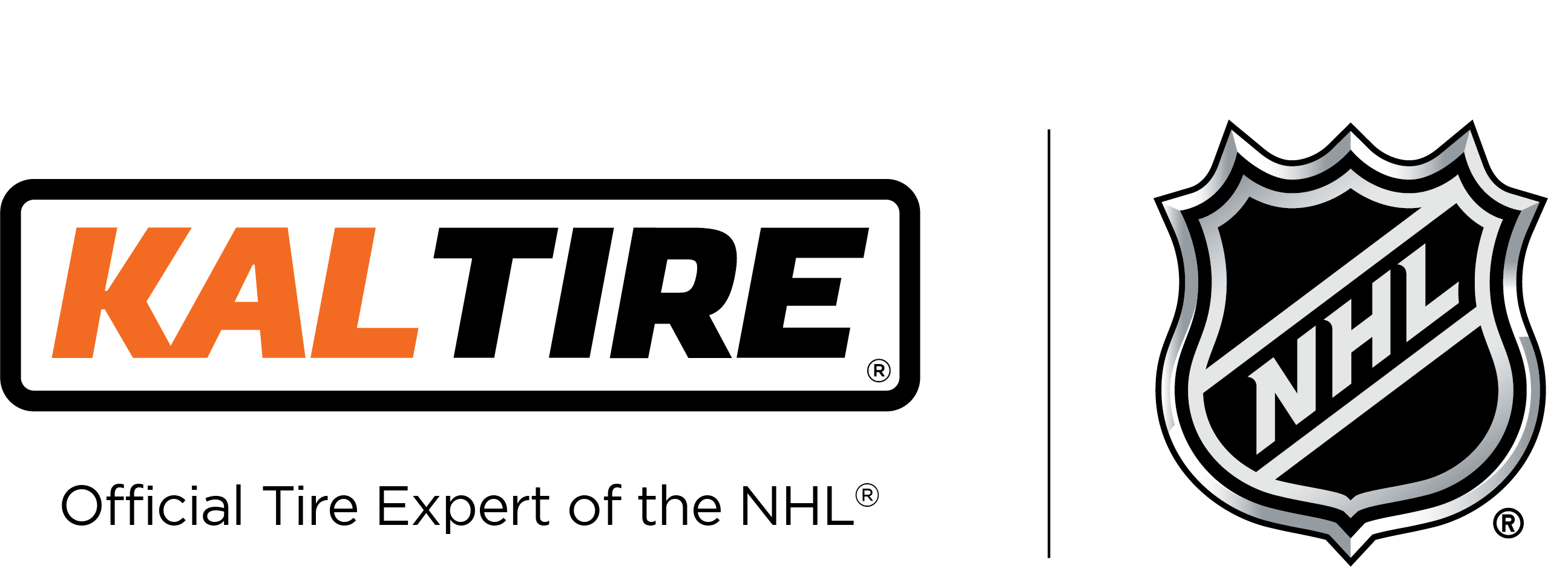3 Ways to help prevent tire cracking
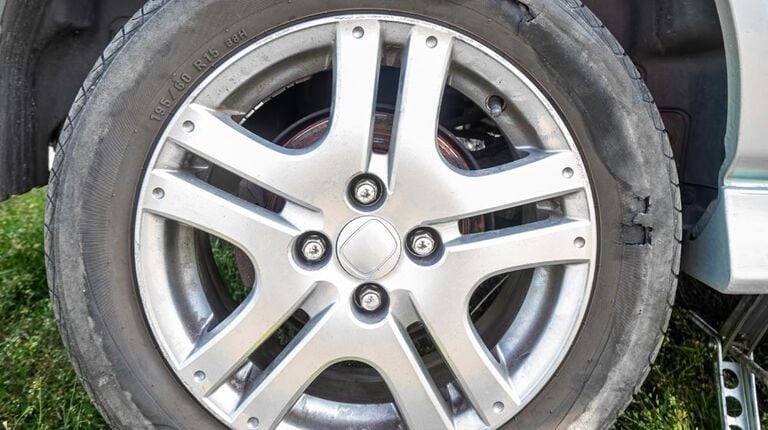
Are your tires starting to show hairline cracks on the sidewall? You might be wondering if those cracks are normal, or what to do when you see tire cracking.
Your tires have a tough job. In addition to bearing the weight of your vehicle and rolling hundreds of times a day to get you places, tires are exposed to some pretty harsh conditions and elements: sunlight, heat, cold, chemicals and corrosive brake dust to name a few.
Given all that, it’s not surprising that over time your rubber’s elasticity weakens, making way for the appearance of surface cracks.
What causes tire cracking?
Surface cracks, which can look like dried mud close up, are sometimes called ‘weather checking’ or ‘weather cracking’ because exposure to the elements is the most common cause of these tiny cracks. Direct sunlight is the biggest offender.
Exposure to sunlight as well as chemicals such as gas can really accelerate tire cracking, often found on the sidewalls or on the part of your tread groove that touches the road.
Today’s rubber compounds actually contain anti-aging properties that help stand up to the elements and extend the life of your tire. But over time, surface cracks are just the result of a tire doing its job: constantly rolling and stopping the face of summer’s heat and/or winter’s cold.
It’s tough to say exactly when it’s normal for surface cracks to appear since the tire model, storage, use and the elements where you live will all make a difference.
What can you do about cracks on your tires?
- Cover your tires, or, better yet, keeping the vehicle in the garage is the best way to protect those tires from the sun. If you or a neighbour has a show car or a motorhome, you know it’s important to shield your trailer tires from the elements while it sits for long periods of the year. For everyday passenger vehicles, try to park your vehicle in a garage or somewhere they’ll be out of direct sunlight if you can and practice good tire maintenance.
- Use your tires. Get your vehicle out on the road as often as you can in season because rolling those tires gets those anti-aging properties in the rubber working.
- Avoid certain tire cleaners. Some tire cleaners can make your rubber look shiny but actually strip your tire’s anti-oxidants and ozone protection.
What to do if you see tire cracking
Tire cracking over time is normal, and it’s a sign that your tires have done their duty and now you need it’s time for new tires so you can enjoy optimum safety and handling.
If your tire cracking exposes any belting, be sure to bring it in for an inspection immediately.




